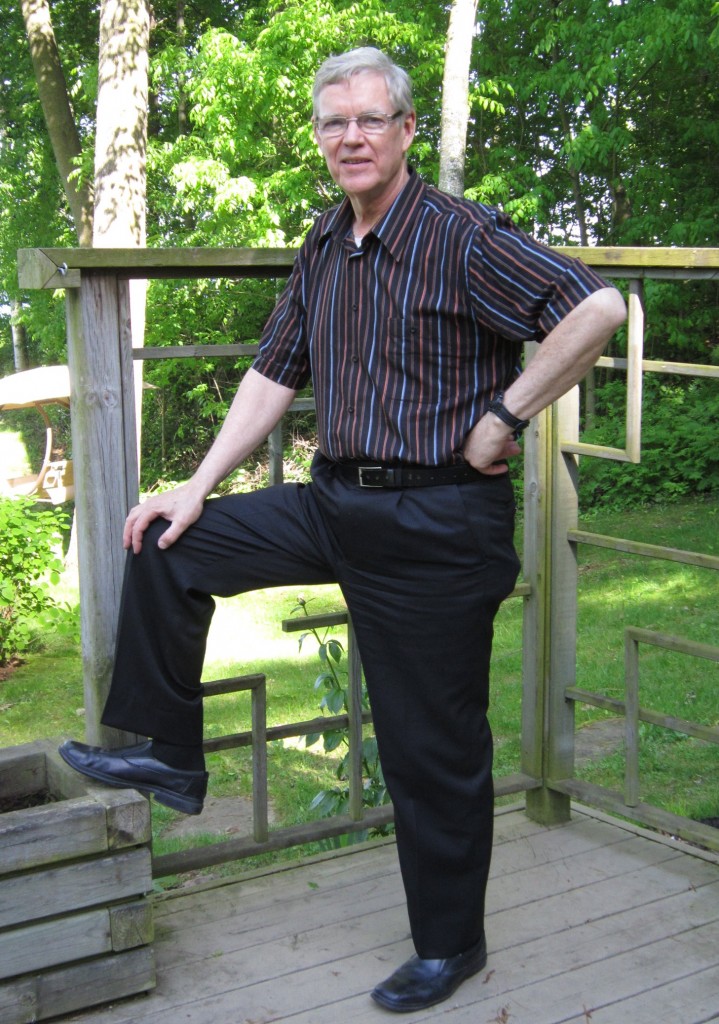By Pepper Parr
 BURLINGTON, ON August 5, 2011 – Why, one might ask. Would you do a piece on someone who was given an award several months ago ? Good question. Couple of reasons; during the presentations we don’t hear very much about the “real work” the Civic Recognition award winners do. The speakers are limited to three minutes and with every one of these award winners there is a really interesting and significant story.
BURLINGTON, ON August 5, 2011 – Why, one might ask. Would you do a piece on someone who was given an award several months ago ? Good question. Couple of reasons; during the presentations we don’t hear very much about the “real work” the Civic Recognition award winners do. The speakers are limited to three minutes and with every one of these award winners there is a really interesting and significant story.
One of the first academic papers Dr. James Henry, who is quick to point out that he is not an MD, but an academic who teaches and does research, was to one of the Nobel Committees. That is not to say that he is a Nobel Laureate, but that he presented a paper to one of the Nobel Committees that keeps abreast of all the scientific research taking place around the world. The type of recognition early in a career is quite unusual.
We found that trying to set up ,meetings with the people who were recognized by the city of Burlington took time and when we finally got through to them – their schedules were packed. Today we want to tell you more about Dr. James Henry, a North Shore Road resident who was recognized as the Senior of the Year. Don’t think wheelchair when you read the word Senior. Dr Henry is as active now as he was when supervising doctoral students at McMaster University where he is a Professor Emeritus, which he explains is a professor who has an office, a lab, a work load, some grant money that he sources, but no salary. I neglected to ask if he got a free indoor parking space.
He served as Professor, Scientific Director, Michael G. DeGroote Institute for Pain Research and Care, Professor, Departments of Psychiatry and Behavioral Neurosciences, and Anesthesia at McMaster University. Dr. Henry started out at McGill University, one of the, if not the Premier universities in the Country.
Dr Henry holds an endowed chair in central pain at McMaster University. He received his PhD in physiology from the University of Western Ontario in 1972 and, appointed as professor of physiology and a professor of psychiatry at McGill University from 1977 to 2002. In 2000, he was awarded the Millennium Distinguished Career Award of the Canadian Pain Society. While at McGill he founded the Quebec Pain Research Initiative. He also founded the Canadian Consortium on Pain Mechanisms, Diagnosis and Management, which is comprised of 40 top pain researchers in a multidisciplinary Canadian think-tank to promote pain research, improve pain management and to disseminate information on pain to patients, practitioners and policymakers. He is also president and chairman of the board of the Canadian Pain Foundation, and is a past-president of the Canadian Pain Society. He is the associate editor of Pain Research and Management. In 2002, he moved to the University of Western Ontario, to create and chair the new Department of Physiology and Pharmacology and in 2005 took up his current position at McMaster.
Being recognized by your community seems like small potatoes when measured against that impressive list of accomplishments. All the titles and the awards don’t quite give you the full measure of the man. He speaks of a “social contract” by which he means the understanding he has that he has been richly rewarded and is now expected to return something to the society within which he lives. “I am in a poison now to do that and it disappoints me that no one else seems to be doing this.”
He is now retired from the faculty of McMaster University but is in their telephone directory as a Professor Emeritus, “which means I get an office, a lab and can spend the grant money that I source” but I’m not on the payroll.”
“I supervise a group of doctoral students, read papers and attend conferences sometimes and I sail my little boat on the bay” he explains if you ask him what he is doing these days.
His views on the academic atmosphere at McMaster are not all that kind. Dr. Henry found that the prevailing social structure was one of “cliques” and that one was expected to fall in line. The peer pressure was significant and some of the expectations unrealistic. So he retired and got involved in pain management and did some research on what pain really is.
 “I ran an advertisement in the newspaper and was just a little stunned with the response. I thought there might be 200 responses max – we got 350 responses”. Out of the advertisement came two groups; one in Burlington and another in Guelph that each held monthly meetings to talk about pain and how it can best be managed.
“I ran an advertisement in the newspaper and was just a little stunned with the response. I thought there might be 200 responses max – we got 350 responses”. Out of the advertisement came two groups; one in Burlington and another in Guelph that each held monthly meetings to talk about pain and how it can best be managed.
People who have to live with chronic pain don’t know what personal dignity is all about – the pain they experience is so debilitating and constant. Many in society think pain is something that one can adjust too – “not true” according to Dr. Henry.
[retweet]















